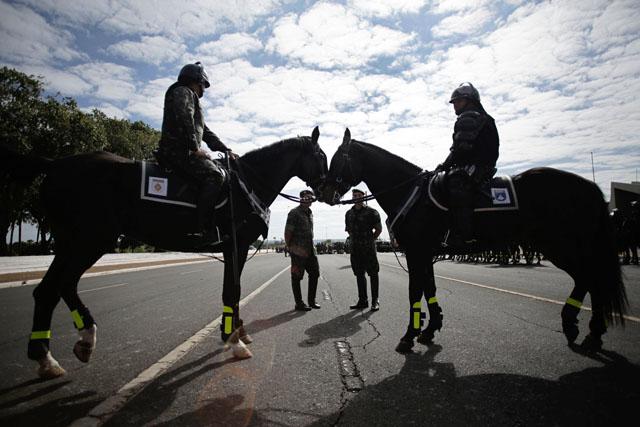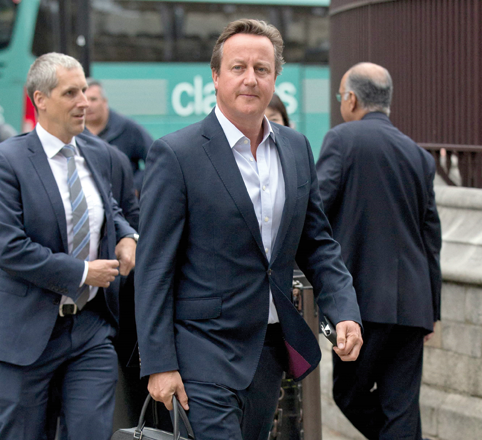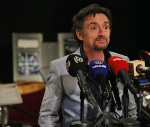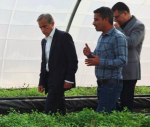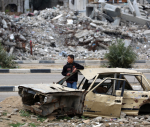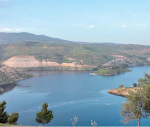You are here
Britain and Falklands mark 40 years since Argentine surrender
Jun 14,2022 - Last updated at Jun 14,2022

In this file photo taken on April 2, 2012, a man walks past a memorial wall listing the names of British servicemen and women killed in military action since World War II at the National Memorial Arboretum in Staffordshire, central England (AFP photo)
LONDON — Britain on Tuesday marks 40 years since Argentine forces surrendered after 74 days of conflict on the Falkland Islands, with many veterans still paying the physical and mental price of the gruelling South Atlantic war.
The Royal British Legion is to host a remembrance ceremony at the National Memorial Arboretum in central England for veterans, bereaved family members and civilian support staff.
The Act of Remembrance will include a live link to a similar event at the 1982 Cemetery in the Falklands’ capital, Port Stanley, from where Argentine forces capitulated on June 14, 1982.
Britain’s prime minister at the time, Margaret Thatcher, announced the surrender to parliament on the same day, vindicating for many her high-risk decision to send nearly 30,000 troops half-way round the world to retake the islands.
The task force returned from the self-governing British overseas territory to a sea of Union Jacks, giving a declining Britain a patriotic boost — and ensuring Thatcher a landslide reelection in 1983.
Argentine forces invaded on April 2, beginning a war which claimed the lives of 255 British servicemen and three female civilians, along with 649 Argentinians.
Many of those killed on both sides were never given a proper burial.
Forty years on, the memories for military veterans are strong, as, too, is their conviction that the islands — nearly 13,000 kilometres from London — are British
In Britain and the Falklands, the anniversary of the start of the conflict on April 2 was muted. Islanders in particular see Argentina’s invasion as nothing to celebrate.
But a year-long series of events has been taking place to mark the 40th anniversary, including those on June 14 to mark Liberation Day — a public holiday on the islands.
British veterans of the conflict, the first since World War II to involve all branches of the armed forces, are grouped under the South Atlantic Medal Association.
Carol Betteridge, of veterans’ charity Help for Heroes, recalled that “for many of those who fought so far from home, the physical and mental wounds they received during the conflict affect them every day — not just on anniversaries”.
“The lack of proper support for mental health means that many Falklands veterans buried their issues and ‘soldiered on’ as they were expected to,” said Betteridge, the charity’s head of clinical and medical services.
“This is why, 40 years on, we still have Falklands veteran coming to us for help for psychological wounds that they have struggled with for so long.”
UK government support for the Falklands under Thatcher’s successors has been unwavering, despite Argentina’s steadfast territorial claims to what it calls Las Malvinas.
Related Articles
Anti-World Cup protests are not the only problem Brazilian security authorities will face during the football tournament. They are also bracing for an invasion of Argentine hooligans.
LONDON — Former UK leader David Cameron sensationally returned to the British government as foreign secretary on Monday, as Prime Minister R
Israeli officials Friday denied claims by a former envoy that Israel had killed most of those behind bombings at its embassy and Jewish charity offices in Argentina in the 1990s, media said.


